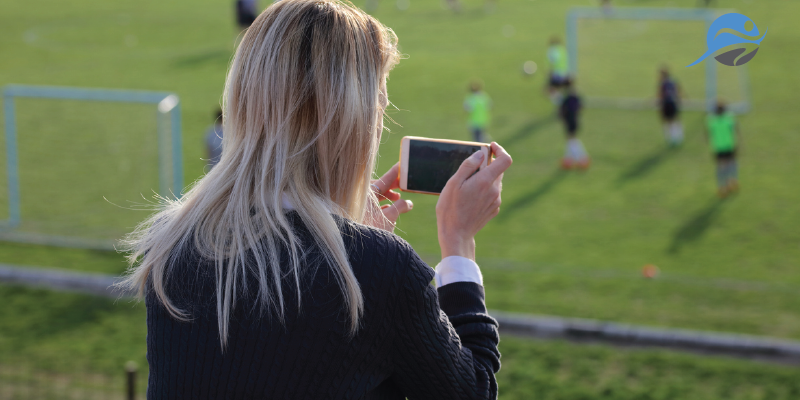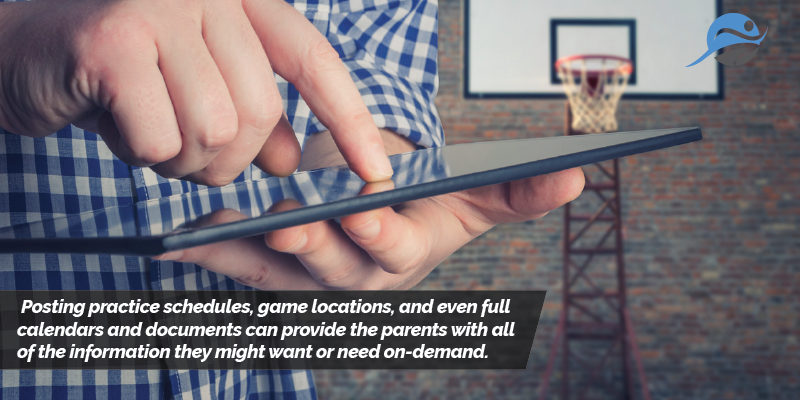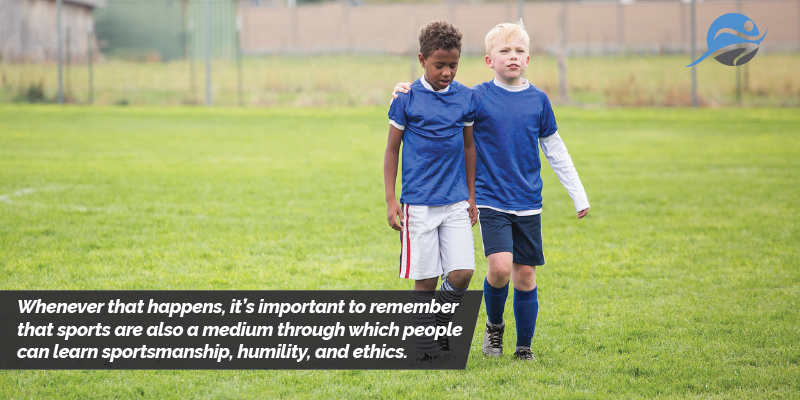Dealing with Helicopter Parents While You Coach Their Kids

Above all else, youth sports are supposed to be enjoyable, fun, and educational. Most of the time they are, as communities have worked hard over the years to foster safe and productive environments for their children to learn and grow in sports. That doesn’t erase any of the many variables that go into a consistently positive experience throughout a young athlete’s season; sometimes, parents can even pose more of an issue than the children themselves. From overprotective parents to those who can see no wrongdoing in their kids, it can become increasingly difficult to manage two teams at once. Fortunately, dealing with that doesn’t have to mean huge effort, so long as you approach it the right way.
Overprotective Parents

It’s a natural feeling -- dropping your child off in a potentially somewhat hazardous situation doesn’t easily lend itself to parental calm. Some parents tend to be more hands-on with their approach to protecting their kids, and so come the worries and concerns they’ll inevitably expect you to set at ease. This is where being prepared and organized with your coaching plan is important. More than likely, the league you’re volunteering or working for handles most of the the organizational logistics on their own, so you just have to be fully aware of the information they give to you. That can be the season’s schedule, the safety guidelines and policies set by the league or division, all locations for practices and games, travel, and more. You should fully expect at least some parents to ask for the specifics behind these things, so being able to answer their questions as they come will be an easy first step toward gaining their trust and confidence.
It’s also likely some parents will bring up safety concerns, depending on the sport and the age range of the division you’re coaching. It’s ultimately inarguable that most sports are dangerous by nature, as they demand extreme bodily actions and reactions in repetition for extended periods of time. That’s another reason, however, that youth sports are important -- they’re a gateway for the kids to learn these sports from the ground up, including all of the proper techniques, warm-ups, stretches, and other precautions set in place to ensure the safety of all players. Reminding the parents of that and of those precautions can be another easy way to gain some of their trust, as you can assure them that you will be working with the children to instill good habits. Part of team sports is the discipline that pulls everything together, and those precautions are not separate from that discipline.
Deeper Communication

Nowadays, we have more tools than ever to connect with one another and communicate effectively to accomplish large tasks, such as coaching an entire season of a sport. Depending on how technologically involved your team’s parents are, you may be able to use social media and other tools to delegate communication and disseminate information. Facebook groups -- separate ones for the team and for the parents, depending on age -- are an easy way to keep your communication organized on a platform where everyone can see and get updates. Posting practice schedules, game locations, and even full calendars and documents can provide the parents with all of the information they might want or need on-demand.
Other more business-oriented tools, such as cloud calendars (Google Calendar, for example) and When2Meet, can be lifesavers when it comes to scheduling and organizing information. Google Calendar allows an admin to create a calendar with events scheduled as desired that anyone with a sharing link can have access to in full. Dates, times, and details can be laid out and updated in real-time as necessary too. When2Meet allows an admin to create a simple poll asking for availability and lay it out visually. Scheduling multiple people over several days (parents for assistant coaching, let’s say) becomes much easier when you have a red-and-green shaded chart displaying their availability in front of you. The efficiency and peace-of-mind tools like these offer can help to bring the parents on your side and make them feel as involved as they’d like.
Good Sportsmanship

Sometimes, you’re met with parents who can see no wrong in their children or some variation thereof. They can complain about playing time, roster placement, your coaching style -- anything and everything that will turn the responsibility of a positive experience away from them and their child and onto you. Whenever that happens, it’s important to remember that sports are also a medium through which people can learn sportsmanship, humility, and ethics. Reminding parents of that when defending decisions you make regarding their child’s experience is a way you can set the bar of respect.
At the end of the day, should any parent(s) have actual issues with the way you or anyone is handling their children, they have the option to remove their children from that team or league and find one that fits their needs better. So long as your goal is to provide the children with the best experience they can have, feedback is feedback, and you should run your team and teach the children the way you best see fit. You won’t always be able to avoid problematic parents, but you can always be prepared to handle them.